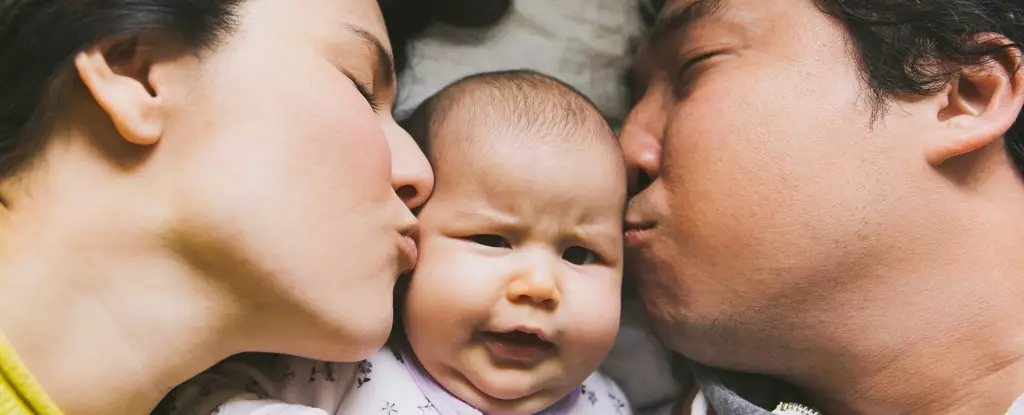It is a frequent occurrence that professionals, armed with extensive knowledge about their fields, fall victim to the “curse of knowledge.” This cognitive bias leads individuals to assume that others possess the same level of understanding, which often results in critical information being overlooked or misunderstood by the general public. For instance, as a clinical microbiologist, I held the misconception that everyone was aware of the potential dangers associated with kissing newborns—especially on their tender heads. This assumption was starkly challenged by a recent TikTok video posted by NHS surgeon Dr. Karan Raj, which drew attention to this extremely concerning issue. With thousands of viewers expressing disbelief at this information, it became apparent that there was a significant gap in public awareness regarding the risks of kissing infants.
Newborns enter the world with significantly underdeveloped immune systems. This vulnerability is crucial but often overlooked. During the first three months of life, the quantity and efficiency of a newborn’s innate immune system components—such as neutrophils and monocytes—are limited. Consequently, even infections that may appear as mild nuisances in older children and adults can escalate to life-threatening conditions for young infants. One terrifying example of this is the herpes simplex virus (HSV). While in adults, herpes may manifest as cold sores, the consequences for newborns can be severe. Infections in infants can quickly progress, with potential repercussions affecting their organs, leading to dire health scenarios that may even result in fatalities.
The risks posed to newborns extend beyond just the herpes virus. For instance, bacteria such as group B streptococcus (GBS) and various strains of Escherichia coli, which may exist in adult hosts without causing harm, can lead to grave illnesses in infants. GBS, for instance, can trigger sepsis, pneumonia, meningitis, and other serious infections that are particularly devastating for the very young. The concern amplifies in the first few weeks of a baby’s life when their defenses are at their weakest. Parents are, therefore, understandably cautious of visitors who might inadvertently introduce harmful pathogens to their delicate child.
Navigating Visitor Etiquette
In the face of these realities, it is crucial for parents to feel empowered to advocate for their newborn’s health. It is perfectly acceptable to ask visitors to refrain from kissing the infant or even minimize physical contact. The love for newborns is usually accompanied by an instinct to protect them, and any reasonable visitor should understand and respect such precautions. There is no need for parents to feel guilty or paranoid; such actions can be seen as responsible parenting.
Practical Tips for Safe Interaction
In situations where kissing or close interaction with a newborn seems unavoidable, certain guidelines can help lessen the risk of transmission of infections. The first and most important step is thorough handwashing. Ensuring clean hands should be non-negotiable. Visitors are also encouraged to avoid kissing the baby on the mouth or face, opting instead for areas such as a foot or the back of the head. Furthermore, if someone is currently dealing with an infection, it’s worth reconsidering the necessity of visiting a newborn. For those with active cold sores, covering the sore and wearing a mask is highly recommended. In the event of respiratory illnesses, maintaining distance becomes paramount to protect the fragile health of the newborn.
While the gesture of kissing a baby may come from a place of affection, it is crucial to understand the potential consequences of such actions. Babies are exceedingly vulnerable, and a simple kiss can have devastating effects on their health. Raising awareness about this issue is essential for communities to protect their youngest members. As the saying goes, ignorance is not bliss—especially when it comes to the wellbeing of those who cannot advocate for themselves. Parents, professionals, and caregivers must not only be informed but also proactive in health and safety practices to ensure the protection of newborns in our care.


Leave a Reply